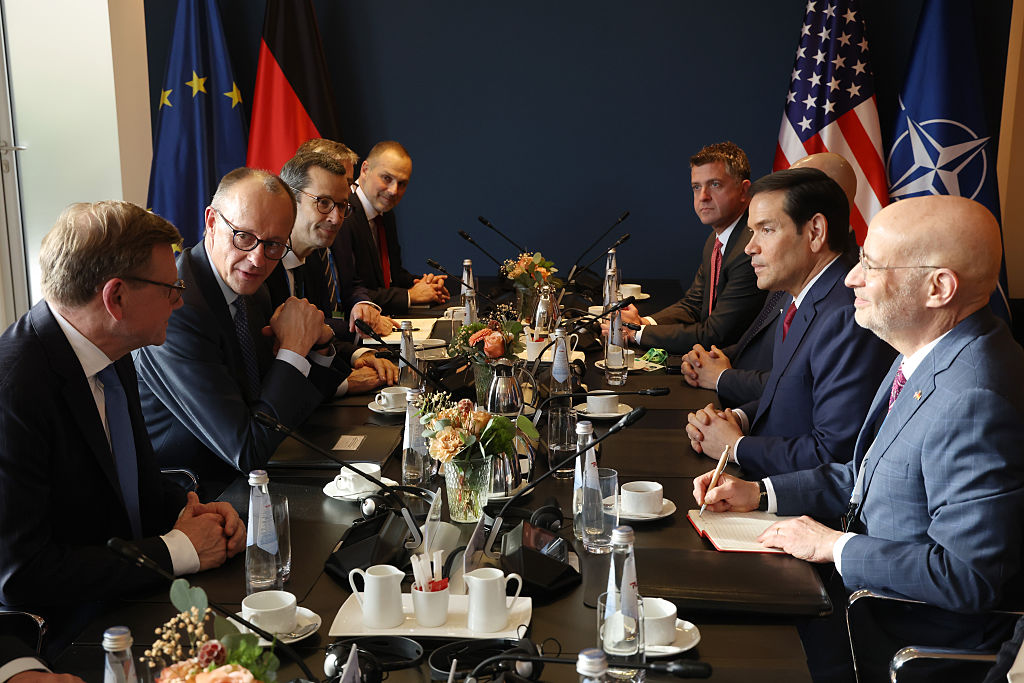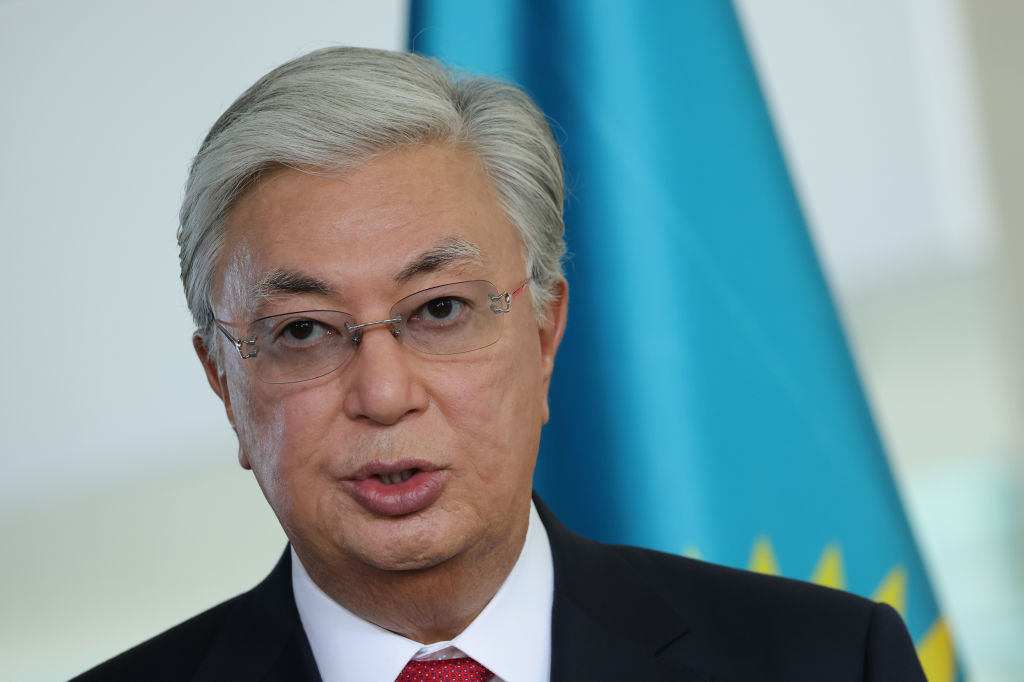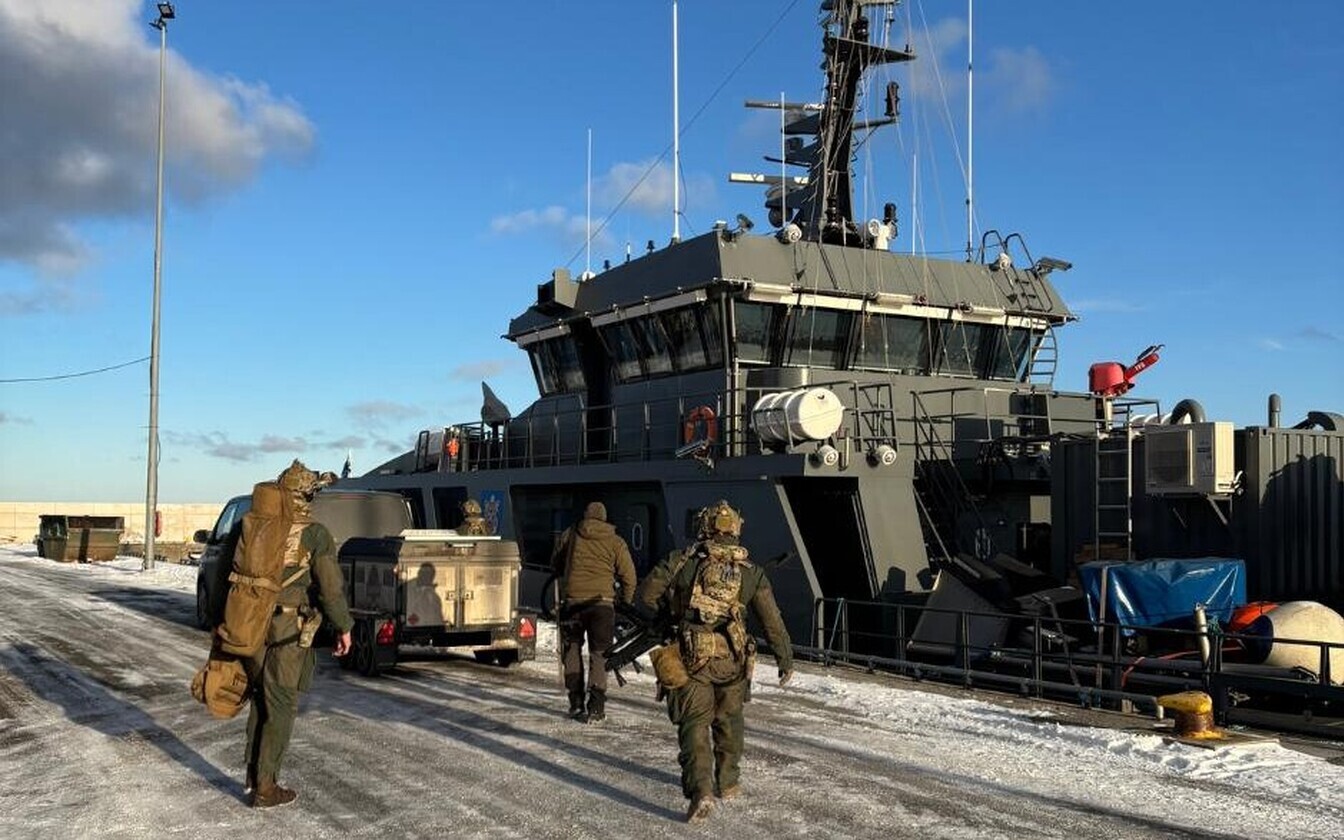Medvedev’s Ineffectual Foreign Policy Lacks Putin’s Firm Hand
Medvedev’s Ineffectual Foreign Policy Lacks Putin’s Firm Hand
Glitz and fanfare in foreign policy have been President, Dmitry Medvedev’s, main preoccupation since the Victory Day parade on May 9. After the back-to-back official visits to Syria and Turkey, he telephoned US President, Barack Obama, and in Moscow greeted the Brazilian President, Luiz Inacio Lula da Silva, and on May 17 made an official visit to Ukraine. Smiles and handshakes continue non-stop, but it is not that difficult to see that the results of all these activities are far from impressive. What is more difficult to establish is whether Medvedev, who visibly enjoys starring in high-profile occasions, understands the low returns on efforts to build his own profile.
The significance of the trip to Syria was in its “first ever” label, which allowed Medvedev to venture suppositions about expanding Russia’s role in the “degraded” (in his words) Middle Eastern peace process and even to suggest that the US “could have adopted a more active position” (Vremya Novostei, May 12). Moscow seeks to benefit from the deadlock, but its position as an impartial mediator is compromised rather than enhanced by Medvedev’s meeting with the leader of the Hamas political bureau, Khaled Mashal, which was carefully arranged by Syrian President, Bashar al-Assad, around a cup of tea (www.gazeta.ru, May 13). The theme of military cooperation was carefully avoided in the official reporting, but last Friday, Russian officials confirmed new contracts on exporting arms to Syria, including Mig-29 fighters (ITAR-TASS, May 15). Damascus has no money for such procurement, so Moscow is obviously returning to the Soviet practice of opening generous credit lines to the “friendly” regimes, which have no intention of ever repaying the debts.
The high point of the visit to Turkey was establishing the High-Level Cooperation Council, which, in Medvedev’s words “serves as evidence that things are going quite well.” The Russian-Turkish political dialogue is indeed untroubled by controversial issues like the Armenian genocide or the status of Northern Cyprus, but the real importance of the new framework for Medvedev is in establishing his formal control over the networks built by his mentor and co-ruler Prime Minister, Vladimir Putin. One practical achievement from the visit was the agreement to abolish visas for short-term visits, which Medvedev called “a historic event,” but in reality obtaining a visa on the Turkish border has always been fast and cheap –and Moscow would have benefitted from emulating this practice (Vedomosti, May 12). A far more significant result was the deal on constructing, in Akkuyu, the first nuclear power plant with four reactors; Rosatom wanted this contract so badly that Moscow agreed to cover the entire cost of the project estimated at $20 billion (Kommersant, May 12).
The main point in Medvedev’s Turkish agenda was gas export and transit, and here the “cordial” talks remained frustratingly fruitless. The Turks wanted a price cut and more flexibility in re-export to the EU; Moscow sought a greater share of the Turkish market and the permission to lay the South Stream pipeline across the exclusive economic zone in the Black Sea (Vremya Novostei, May 13). None of these issues were resolved, and Turkey, instead of expanding its gas ties with Russia, now contemplates the benefits of diversification, in order that a supplier would not deliver more than 50 percent of its demand. Seeking to advance this goal and to help the struggling Nabucco pipeline project, Turkish Prime Minister, Recep Tayyip Erdogan, visited Baku last Sunday in order to resolve the accumulated gas issues with Azerbaijan (Zaman, May 16). In every one of his recent trips Medvedev has reminded his counterparts that for many years he had been the chairman of Gazprom’s board, but that experience apparently has not made him a tough negotiator who has the ability and authority to make decisions necessary to reach complex deals.
The meager results gained in Turkey do not bode well for Medvedev’s visit to Kyiv, which is intended to signify a breakthrough in the new “brotherly” pattern of bilateral relations. The energy intrigue has taken several sharp turns in recent weeks, and the agreement on a 30 percent cut in gas prices in exchange for granting the Russian Black Sea Fleet the 25 years prolongation for basing in Sevastopol has left both sides dissatisfied (The New Times, April 26). Trying to correct this “strategic” violation of economic interests Putin suggested a merger of Gazprom and Naftogaz, but the Ukrainian leadership correctly interpreted the offer as a far-from-friendly takeover (Vedomosti, 4 May). Medvedev can try to stop this sequence of miscalculations and misunderstandings, but he cannot escape from the self-made gas trap: investing in modernization of the massive gas infrastructure in Ukraine makes economic sense only if the exorbitantly costly South Stream project is cancelled, but that would undermine the uncertain energy deal with Turkey and clash with Putin’s personal preferences (www.gazeta.ru, May 14).
While Medvedev performs his diplomatic dance, Putin finds it opportune to demonstrate his confident control over Russia’s economy by gathering a forum of two key ministries –finance and economic development (Kommersant, May 15). He praised himself for focusing the anti-crisis policy on preserving social and political stability, pointing to the unrest in Greece and emphasizing the troubles in the Baltic States. His point that “social and political instability seriously limits the government’s ability to conduct sound macroeconomic policy” might appear to be in self-defense, but he does not allow the debates to ponder the proposition that the inflexible and incoherent government responses to the crisis have aggravated its destructive impact (www.gazeta.ru, May 15).
Putin has apparently concluded that the slow recovery constitutes no serious challenge to his dominance over the bureaucratic clan squabbles or to his unquestionable authority concerning public opinion. He keeps charting the course towards reclaiming the presidency in 2012 assuming that sustained growth would return and the painful turbulence would be remembered as a feature of Medvedev’s “interregnum.” He dismisses the assumption that the crisis is evolving and eroding his model of “petro-prosperity,” so that the elite consensus around rebuilding the “business-as-usual” is crumbling, while social discontent is deepening and widening. In that he is not that different from any other “enlightened” authoritarian ruler who has overstayed his time.


